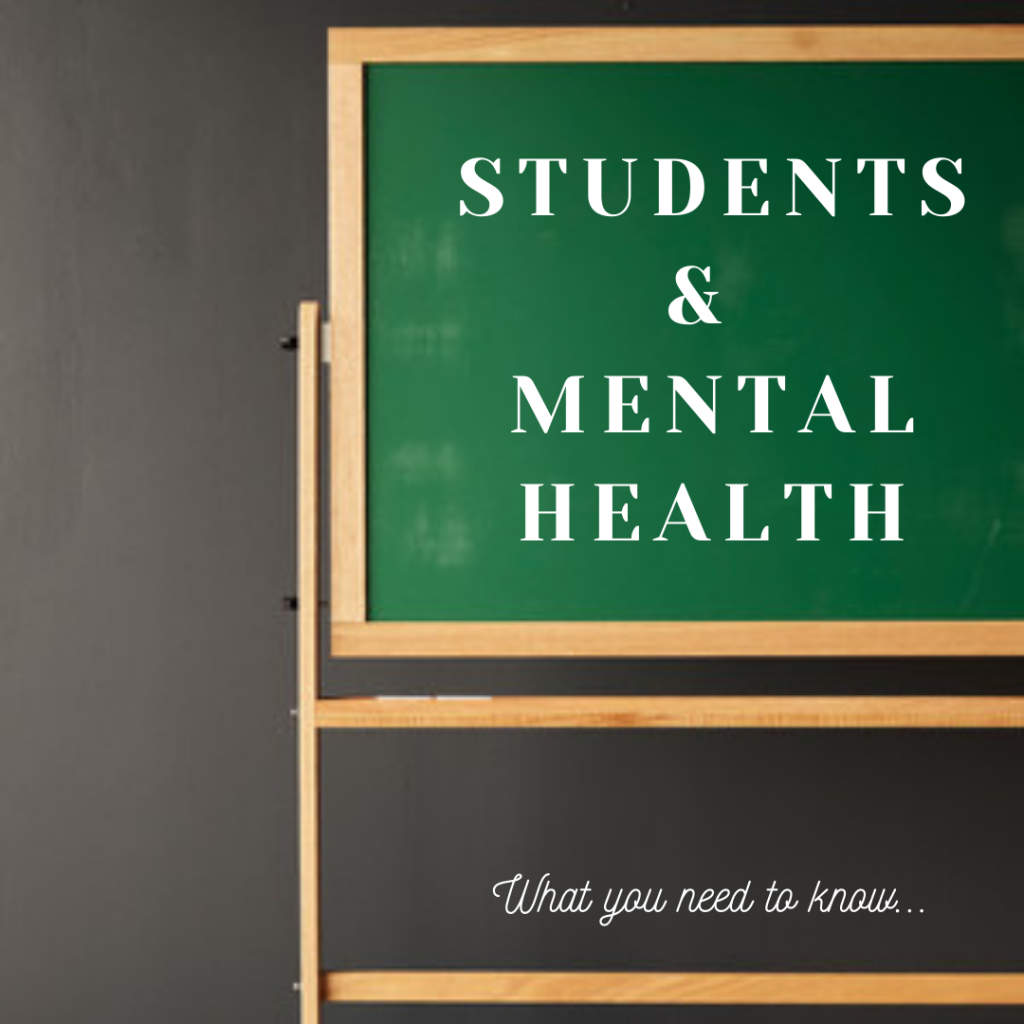
This writer knows from personal experience just how taxing school can be on mental health. As a 4.0 high school student I received a scholarship to a wonderful university to pursue my dream of becoming a music teacher. I was sure I had the whole world ahead of me. I was determined to keep my grades up and to have as many college experiences as possible. I worked constantly on homework, practicing my instrument, making friends, going on dates, and everything else you might imagine. Every moment of every day was scheduled and accounted for.
It wasn’t until my sophomore year that I started to realize what a toll this life was taking on me. I didn’t have time to cook healthy meals and instead began to stress eat. If I didn’t have enough time, that simply meant I would get less sleep. Often, I was only getting 6 hours of sleep in a 72-hour period. I was constantly afraid I wasn’t doing enough, feeling guilty if I ever took a moment to relax.
After two and a half years of this continual pressure, I snapped. What I had thought was a minor case of depression collapsed, crushing me under its weight. That’s when I made a permanent decision. That is when I decided to take my own life.
Attempting to commit suicide was a life-altering event for me. I was extremely fortunate; I did not succeed in my attempt to kill myself. Instead, my dire need for help was brought to the attention of my loved ones. I had been to afraid to ask for help, but my actions asked for me. However, many are not so lucky. Many students succeed in their attempts to end their lives. Suicide is the second leading cause of death in young people ages 15-24. In fact, 1 in 5 college students reported suicidal thoughts and 9% actually attempted suicide.
Most people don’t realize how common this problem actually is. They think they are alone. They think they cannot express their fears without seeming weak. They think there is no help for someone like them. Below are some tips on avoiding student suicide, from someone who has survived it.
Know the Signs
• Sleeping problems. Not sleeping or sleeping excessively.
• Feeling as if you can’t do anything right, as if your presence is a burden to others.
• Finding it difficult to feel as if you fit in, even in places you felt you used to belong.
• A disregard for personal hygiene.
• Dramatic changes in eating habits
• Extreme mood swings
• Recent obsession with death (in movies, music, media, etc.)
• Risk taking behavior
• Poor academic performance
• Unusual visits or calls to people (to say goodbye)
• Self-destructive behavior (alcohol/drug misuse, self-injury or mutilation, promiscuity)
• Talking or joking about suicide
Where to Find Help
• Find somewhere safe to stay until the suicidal thoughts leave (with a friend, a neighbor, a family member, in a church or community center. Anywhere you can feel safe.)
• Call the National Suicide Prevention Hotline 800-273-8255
• Visit our page at insaneability.org
• Ask your general practitioner for a referral to a psychiatrist and/or psychologist
• Visit your school’s health services
• Ask your church or community leaders for referral to mental health professionals
• If you’ve already harmed yourself in some way, call 911 immediately
How Can Loved Ones Help
• Listen. Sometimes when your loved one needs to talk, they don’t want you to fix everything. They just want someone to sit and listen.
• Stay in touch. Don’t let your loved one feel abandoned. Create positive memories.
• Share your own stories and struggles.
• Encourage your loved ones to take time for themselves for self-care (naps, showering, eating a healthy meal, reading, etc.)
• Pay attention to your loved one’s social media
• Do not minimize how your loved one might feel or treat them as if they are just trying to get attention.
• Praise your loved one for having the courage to seek help.